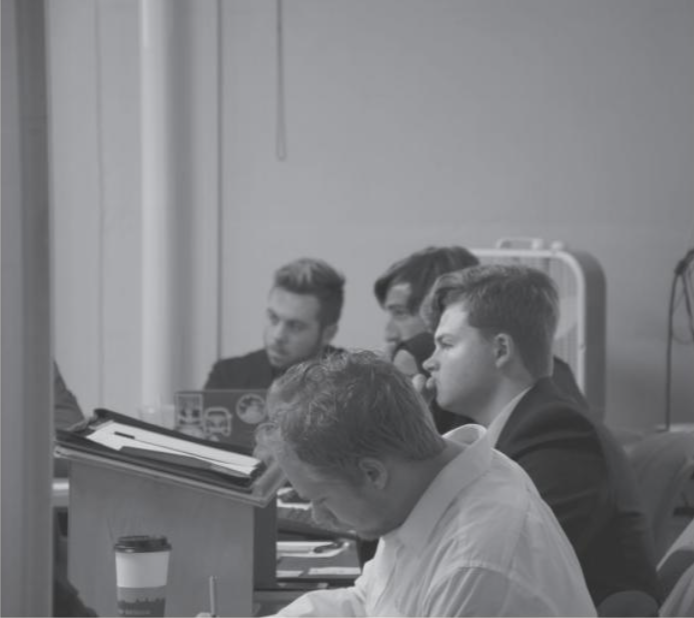By: Cara DeRose, Copy Editor
The Sept. 29 student senate meeting began with the election of senior business major Chase Hewitt. When Senate Chair Muna Adan asked Hewitt why he was interested in joining student senate, Hewitt responded that he is “specifically interested in commuter issues [and] helping commuters have a better experience here [at USM].”
Although Hewitt has no prior experience in politics, he told senators at the meeting that he “has a lot of customer service experience” and “enjoys working with people directly, building relationships.” Hewitt was elected to the senate by a majority vote.
Senator Zachary Tidd was elected as a student senate representative to the USM Student Communications Board. Senators Chase Hewitt and Kyle Brundige were appointed to the senate’s personnel review board, which meets twice a year to review senate bylaws and duties. Senate Clerk Joshua Blake was unanimously appointed to the Student Culinary Council, which works to improve campus dining and sponsors food-themed events at USM.
METRO’s Board of Directors Vice President Ed Suslovic and General Manager Greg Jordan gave a twenty-minute presentation on USM’s METRO program, which starts next year, and route plans. Jordan revealed details about the program.
“The broad strokes are in place,” Jordan said about the program, “but we need [the senate’s] help figuring out what the students need.”
Approximately 1500 students live in proximity to a METRO transit route, which according to Jordan, speaks to the program’s ridership potential. In addition to pre-existing transit lines, a limited-stop Husky Line will be added.
This route will start at the Gorham campus and stop at Gorham Village, Downtown Westbrook, Westbrook’s commercial district, Portland’s Rosemont district, the Portland campus and then go into Downtown Portland.
This transit route will operate as a bus rapid transit light system, which Jordan described to the senate as a light-rail system “on wheels.” Rather than bus stops, there will be bus stations, and the buses will have a greater rider capacity than the coach buses.
Another route will extend from Westbrook to the Maine Mall, with the Gorham and Portland campuses as two stops on the route. Monday through Friday, the buses will operate from 6 a.m. to 11 p.m. and make stops every 30 minutes.
“USM will be able to put less real estate in parking and more into students and other programs,” Jordan said.
METRO is currently working with USM to create an internal task force to advise METRO on the program. Jordan and Suslovic stressed that a USM student should be on the task force.
Representative to the University of Maine Board of Trustees Dylan Reynolds spoke to the senate about the board’s long-term action plans. Although most of these plans are not set to achieve immediate goals, Reynolds discussed an exception.
She had met with Samantha Warren, director of community and government relations for UMS, who talked to the board members about going to various Maine public universities and finding students who would be willing to advocate for higher education before the state legislature.
This year, in the legislature, most of the conversation about education was devoted to K-12, with elementary and secondary schools receiving over $100 million in funding.
“None of that went to higher education,” Reynolds said.
Reynolds also touched upon the university system’s strategic resource allocation project, which is an “effort to modernize the university” and “create greater integration” between UMS schools over the next four to five years. Three of this project’s goals are to increase student enrollment, “enhance the fiscal positioning” of the universities and support Maine “through research and economic development.”
After Reynolds’ presentation, Senator Kyle Brundige discussed his proposal for a financial relief program, which is still in the drafting stage.
“The program is designed to assist students in financial need, such as those who have outstanding bills they can’t pay right away,” Brundige said. “There will be a mandatory fee of five dollars everyone in the student body is charged. That money will be put into a pool to be used exclusively for this program.”
The money will have to be repaid, which can potentially be done through a repayment plan or through voluntary work hours.
Senators voiced their concerns about the mandatory fee. Senator Hawraa Rikan remarked that students will view this proposal like they viewed free printing at USM and will not want to fund the program.
“This is socialism at its finest,” she said.

